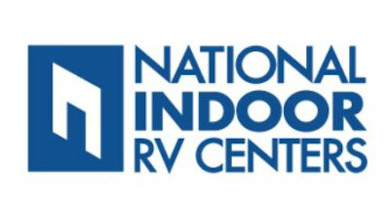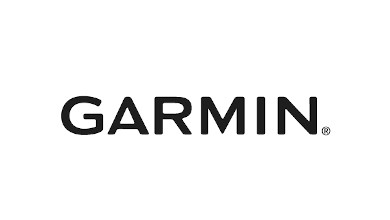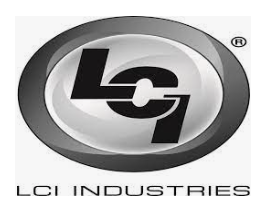Q&A with Wells Fargo’s Chad Lyon
The new commercial leader for Wells Fargo’s RV commercial lending business offers thoughts on what dealers can expect for floorplan and consumer financing, as well as the overall health of the RV industry.
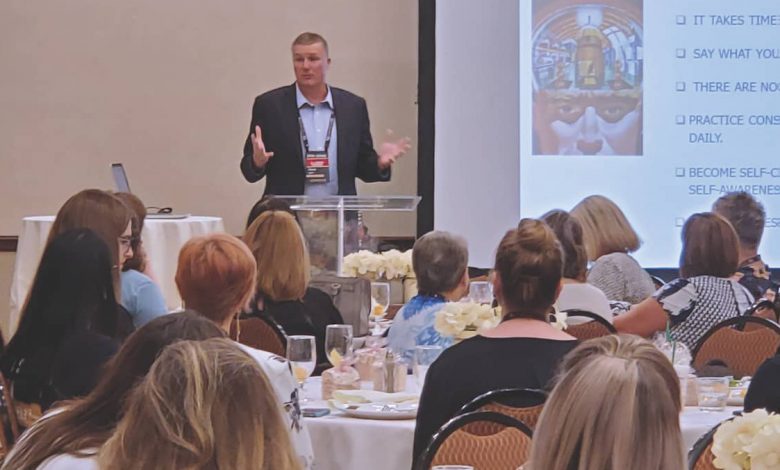
Chad Lyon doesn’t own a boat or an RV, but as the industry veteran assumes his new role as “commercial leader” for Wells Fargo’s RV business, he says, “That’s subject to change.”
Lyon will continue overseeing Wells Fargo’s marine, appliance and electronics sectors, but has recently taken on RV floorplan financing as well. His promotion is part of a restructuring that occurred as Tim Hyland, former president of the company’s RV Group, left the company.
As Wells Fargo realigns its RV industry priorities and goals, the 28-year commercial lending expert pins his hopes on the industry’s bright future. He says the RV industry has seen consistent growth every year since 2009, and that he expects more of the same for the years ahead. The pandemic changed how people travel and pushed more people into full-time and recreational RVing, giving rise to belief the industry is embarking on yet another RV boom.
RV PRO recently caught up with Lyon to gather his views on what dealers can expect for floorplan and consumer financing and the health of the RV industry.
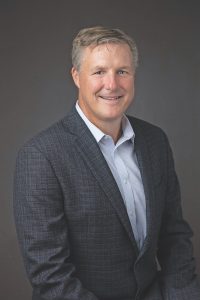
RV PRO: What made you choose commercial banking as a career?
Lyon: It’s a neat business that applies business principles such as financial analysis and economic outlooks and things you learn in the classroom. Relationship building and building trust and understanding of these markets also play a role. You get to interact with a lot of different people, whether it’s dealers, manufacturers or even the media. You must be humble, insightful, and thoughtful about what you do.
RV PRO: How did you land in the RV industry after 28 years in commercial lending for other markets?
Lyon: My boss gave me the opportunity, which I appreciate. We changed some assignments, and he asked me to take it on. I was very happy to accept. Wells Fargo has a long history in the RV industry. So, in all honesty, it was a great opportunity to be part of a great business at a unique time in the industry. It wasn’t a hard choice for me to join it.
RV PRO: Where do you see the RV industry heading in 2022 and beyond?
Lyon: It’s been a great run for the outdoors, right? Powersports, boating, RVing, hunting and fishing, and other outdoor activities have seen a spike in demand.
COVID-19 played a role. The narrative you hear from many people is that this is all COVID driven. I think demand was there before.
But now, consumers are making a lifestyle choice, which is great for the industry, long term. If all these new entrants to RVing become core buyers, the industry will grow.
The industry has always built itself on new entrants becoming repeat buyers as their situations change. Their family grows, so they get a bigger RV. Or their income grows, so they can afford a nicer RV and better experiences.
This is not just a 2021, 2022 view, either. We see consumer demand in 2022 staying very strong. We just need to keep up output.
RV PRO: When is the earliest that you see demand slowing?
Lyon: We don’t see demand changing throughout 2022. We really don’t. The earliest would be 2023. But even then, we still think there are a lot of buyers that are not participating yet because they know how hard it is to get a new unit. They will purchase a unit when demand starts to cool.
RV PRO: What can consumers expect right now for RV financing?
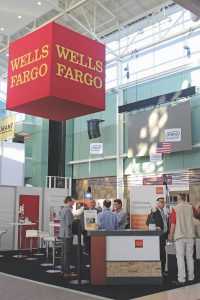
Lyon: With increasing employment and increasing wages, and with revolving credit card debt down over the last couple years, it’s a great time for consumers to buy. Extra savings rates are at all- time highs, so the person buying an RV should be in great shape.
The dealerships also are seeing great margins and profitability. They are in a great spot from a lending standpoint, whether they’re lending directly to consumers or financing floorplans. There are a lot of good dynamics around credit quality. Dealers are taking advantage of consumer demand and the opportunities it presents, which is the nature of this business. What is unique for them is acquiring product, which is more of a struggle than in the past.
RV PRO: Do you see consumer financing or floorplan financing becoming more difficult in the months to come? And if so, why?
Lyon: I would say ‘no.’ The wages, the employment rate, the interest rates are core pieces that must be in place for consumers to buy products. I feel pretty good that these trends will continue near term.
Dealerships will continue to benefit from ongoing demand in the near term. But, though it’s not on the horizon right now, I feel like all of this could change abruptly. At some point, interest rates will go up, which typically reduces demand. The sale of RVs is interest-rate sensitive. However, interest rates are so historically low that it doesn’t seem like it will happen right now. The RV industry is in such a good position with good product and excellent demand. I don’t feel there is anything that will affect that over the next six months. And with COVID continuing to grab headlines, people will flock to the outdoors.
RV PRO: How have unprecedented demand and low inventory levels impacted dealers?
Lyon: We are in an interesting place right now, where we’re starting to see comparable unit sales at retail down year over year. We expect total unit sales will be down when we compare 2021 to 2020.
There was a lot more field inventory a year ago. It is a unique dynamic to have very strong retail demand and not have the products we need to fulfill orders today. This scenario will push the deals.
And it will push dealers into making sure they’ve got other revenue streams, whether that’s F&I sales, pre-owned sales, parts and service, or learning academies for customers. Dealers will focus on those areas to make sure they’re maximizing all revenue opportunities, which they might not do if they had more product to sell.
The situation also creates a longer-term tailwind for the industry. You may not get all the products you could have sold in the second, third or fourth quarter of 2021. But with this sustained demand, you’re putting product on order. You have a good pipeline of sold product and can build floorplans around that for 2022.
The lack of product creates some tension with consumers, but most dealers find ways to work around that.
RV PRO: Have you seen dealerships increase F&I sales?
Lyon: That’s a trend we see. Low interest rates help boost F&I sales. The dealers also are more focused on incremental revenue pieces because of limited product availability. They want to maximize what they can off each sale.
RV PRO: How long until inventory levels match consumer demand?
Lyon: That’s a good, complicated question. I don’t want to use the word shortage. Manufacturers are doing all they can to maximize production to meet elevated consumer demand. We are now seeing financing slowly increase. This shows demand is catching up with supply. It’s going to get better, but strong demand will continue.
I don’t have a crystal ball to know exactly when this will change. But we are seeing a closer match between supply and demand as each quarter goes by.
RV PRO: What will the impacts of the inventory shortage be in the long term?
Lyon: Once we get past the near term, we will use this experience to better match supply and demand. I think the industry will move toward lower inventory levels and try to maintain higher returns than what we’ve historically seen.
I also think dealers will be somewhat concerned about being too light on product. So, there will be a healthy internal debate within dealerships around what they should stock, what they shouldn’t. There will be pressure to make sure that we don’t get to a place where we are too low on inventory. But dealerships will try to manage with less inventory.
Whether that’s realistic, we will have to wait and see. But I think that there will be some aspiration to maintain a little less inventory. The consumer changed their mindset through the changes of the past year and a half. They’re willing to wait a bit for product. But they still want to walk through product before they buy.
RV PRO: Do the people you work with in the RV industry seem optimistic about the future?
Lyon: Absolutely. Dealers and OEMs have a very optimistic long-term outlook. All businesses have cycles, but right now they see the addition of new buyers and expect them to become core buyers and start trading.
More unit sales this year pulls into next year. Now you’ve got a nice pipeline that the industry has cultivated. It makes everyone very optimistic about the long cycle.
RV PRO: Is there a risk of losing new entrants to RVing? What do dealers need to do to keep people in the industry?
Lyon: The pessimistic view of the spike in demand is that people are going to get into products and will not enjoy the lifestyle. But the feedback we get from dealers is new entrants are enjoying the RV lifestyle – generating a feeling that they will become longer- term participants. Dealers are not getting new buyers who return at year’s end to trade out their product. There seems to be a nice retention rate. This has always been an industry where people traded up, not out.

RV PRO: How does what is going on in the RV industry compare to the other markets you’ve served in the financial industry?
Lyon: I spent the first part of my career in the marine industry. Then I moved into our technology finance business. In most of the businesses I’ve been in, the OEMs build the product and sell it to independent dealers who sell to consumers. Each market has its own unique pieces.
But there are some similarities between how product flows and the financing of independent businesses.
Every business we are in is seeing a spike in consumer demand. The boat businesses, motorsports, the appliance businesses are all seeing similar growth and depend on relationships with us.
We’ve done a good job of building and driving those relationships. Helping independent dealers with floorplan financing says we value the relationship. They also value the relationship with us and see us as trusted advisors. We are that third party that they can bounce ideas off or answer their questions.
RV PRO: Will you be at the RVDA Convention and Expo in October? What are your plans for that event?
Lyon: For me, it’s an opportunity to meet people in this great industry. I’ve met many people in the first four months I’ve been doing this and have really enjoyed it.
But this is a relationship business. It’s important to meet key players and see people I know in person to keep building relationships and to better understand how we can support their businesses. It is a great time to ask our customers what we could do better to help them. I will be there to meet people, listen and learn.
RV PRO: What is Wells Fargo doing to support the RV industry throughout the new normal?
Lyon: We are very supportive of the industry in terms of the financing, despite lower inventory levels representing lower opportunity for us. Wells Fargo is a sponsor of the event in Vegas.
We’re trying to develop data and insights from the industries we serve to help dealers be prescriptive in the new normal. This is at the core of what we’ve always done in these businesses.
We are seeing indications that supply better matches demand and other things that dealers should know, and we want to share those insights to help them look around the corner toward the future.
